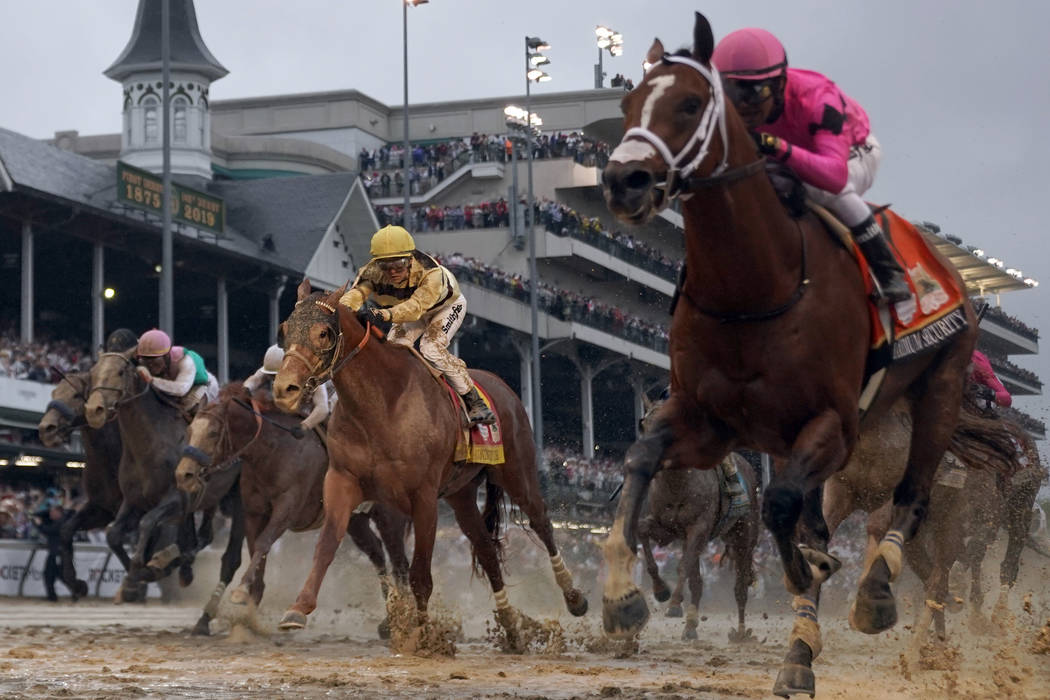Kentucky Derby disqualification was the right call

The disqualification of apparent Kentucky Derby winner Maximum Security continues to generate controversy and headlines, but the outcry is as misguided as the colt was when he bolted to the right approaching the stretch.
The Churchill Downs stewards made the right call in demoting Maximum Security after he crossed the finish line in front in Saturday’s 145th running of the Derby. The horse badly bumped War of Will as he was slipping to his outside to mount a challenge, triggering a chain reaction that also affected Long Range Toddy and Bodexpress.
The rules of racing in Kentucky — and anywhere else the sport is conducted — clearly state that leaping in front of and bumping a rival is not allowed. The rule does not require that the interference be intentional, which it clearly wasn’t in this case.
The reaction to the disqualification among betters — far more of whom were holding tickets on 9-2 second favorite Maximum Security than on eventual winner Country House, who was 65-1 — is not surprising. What is baffling is the reaction of various sports writers, who are supposed to know which end of a horse gets the bit and bridle.
‘Egregious decision’
USA Today columnist Dan Wolken, for example, blasted what he called the “egregious decision” in a story that ran under the headline, “Maximum Security was robbed at Kentucky Derby, yet another black eye in horse racing.”
But some better-informed critics also have been taking issue with the call.
“No one ever calls an objection in the Derby,” Hall of Fame trainer Bob Baffert said by text in an exchange with Sports Illustrated’s Tim Layden. “It’s always a roughly run race. Twenty-horse field. I have been wiped out numerous times, but that is the Derby. I can see by the book why they did it. But sometimes you’ve got to take your ass-kickings with dignity.”
And Andrew Beyer, horse racing columnist emeritus for The Washington Post, wrote on Monday that the decision was a bad one because the incident didn’t affect the order of finish. He wrote that in his estimation, the bump cost War of Will about one length, not the roughly 4½ lengths he finished behind Maximum Security.
The detractors’ arguments essentially boil down to the notion that Maximum Security was the best horse, the incident didn’t alter the order of finish and the Derby is special and the usual rules shouldn’t apply.
I beg to differ.
Maximum Security probably was the best horse on this particular day, but even that can’t be stated with any certainty. Game Winner, for example, was bumped solidly at the half-mile pole and then forced extremely wide around the far turn and into the stretch before finishing just over five lengths behind the apparent winner. Without that trouble, maybe he was best.
As for the notion that the incident didn’t alter the order of finish, how can anyone say that? Perhaps the bump knocked the wind out of War of Will, who looked plenty menacing as he loomed up on Maximum Security’s right flank before flattening out after the incident.
Courting disaster
Finally, the idea that the judges shouldn’t interfere with the Derby outcome is wrongheaded and dangerous.
While Baffert and others are correct that the Derby is generally more rough-and-tumble than your average race, this wasn’t the first DQ in the race, just the first involving an apparent winner. In 1984, for example, Gate Dancer was found guilty of interference and dropped from fourth to fifth. And there have been disqualifications in other big races, including two Breeders’ Cup races.
Why should the Derby get special treatment, particularly when it is without a doubt the most dangerous race of the year in North America? Anything that prompts riders to take bigger risks to win a race that already resembles a moving mosh pit simply would be courting disaster.
Horse racing columnist Mike Brunker can be reached at mbrunker@reviewjournal.com or 702-383-4656. Follow @mike_brunker on Twitter.